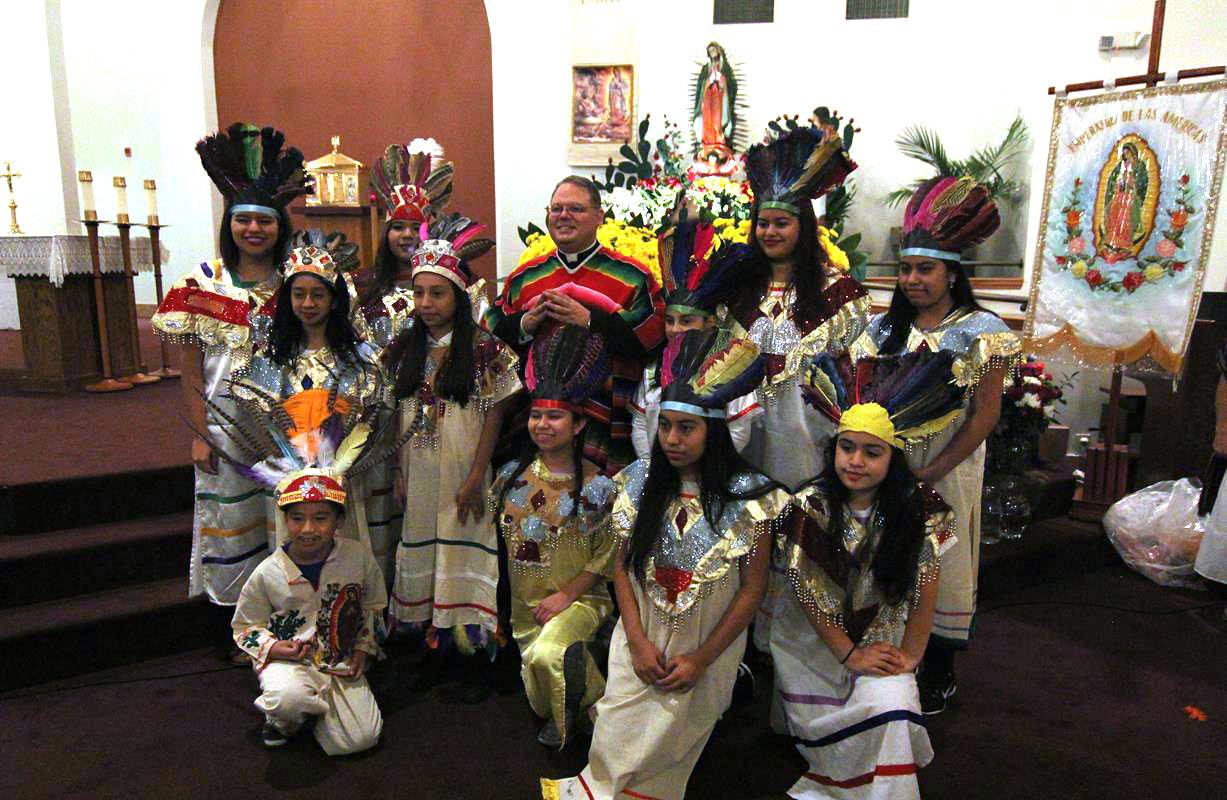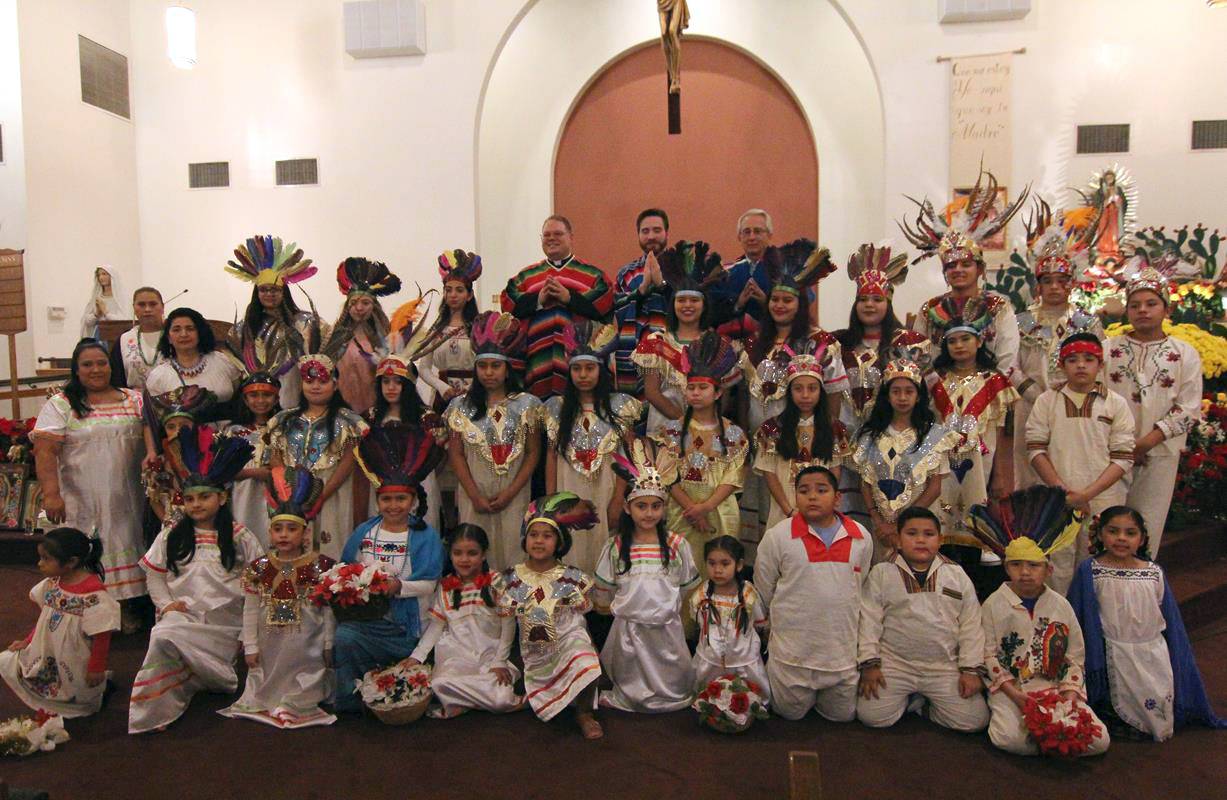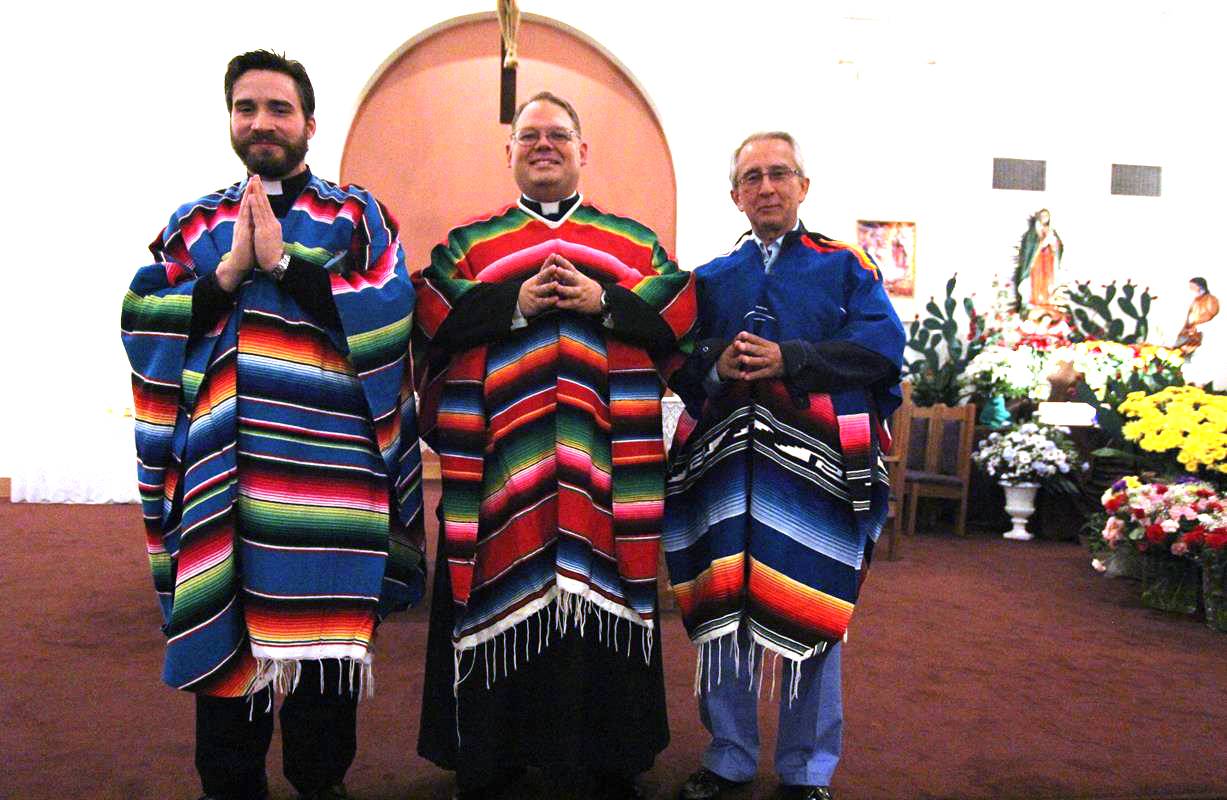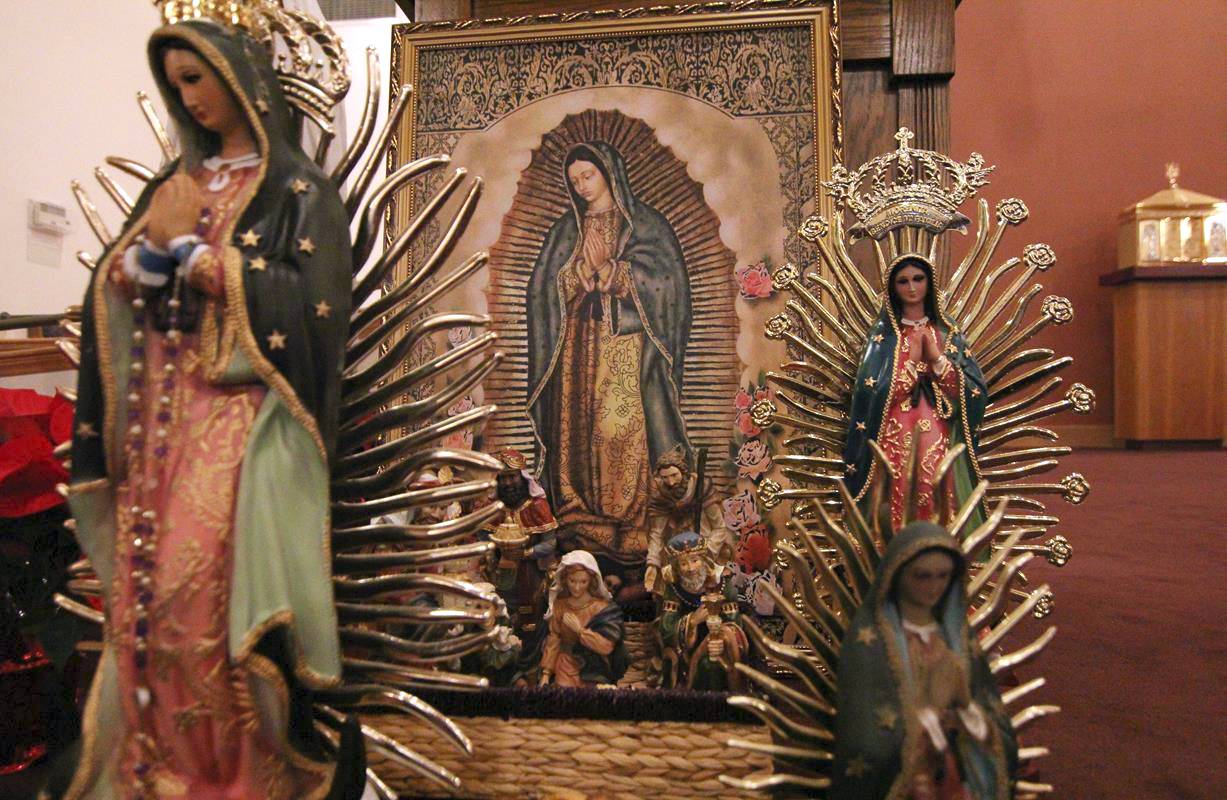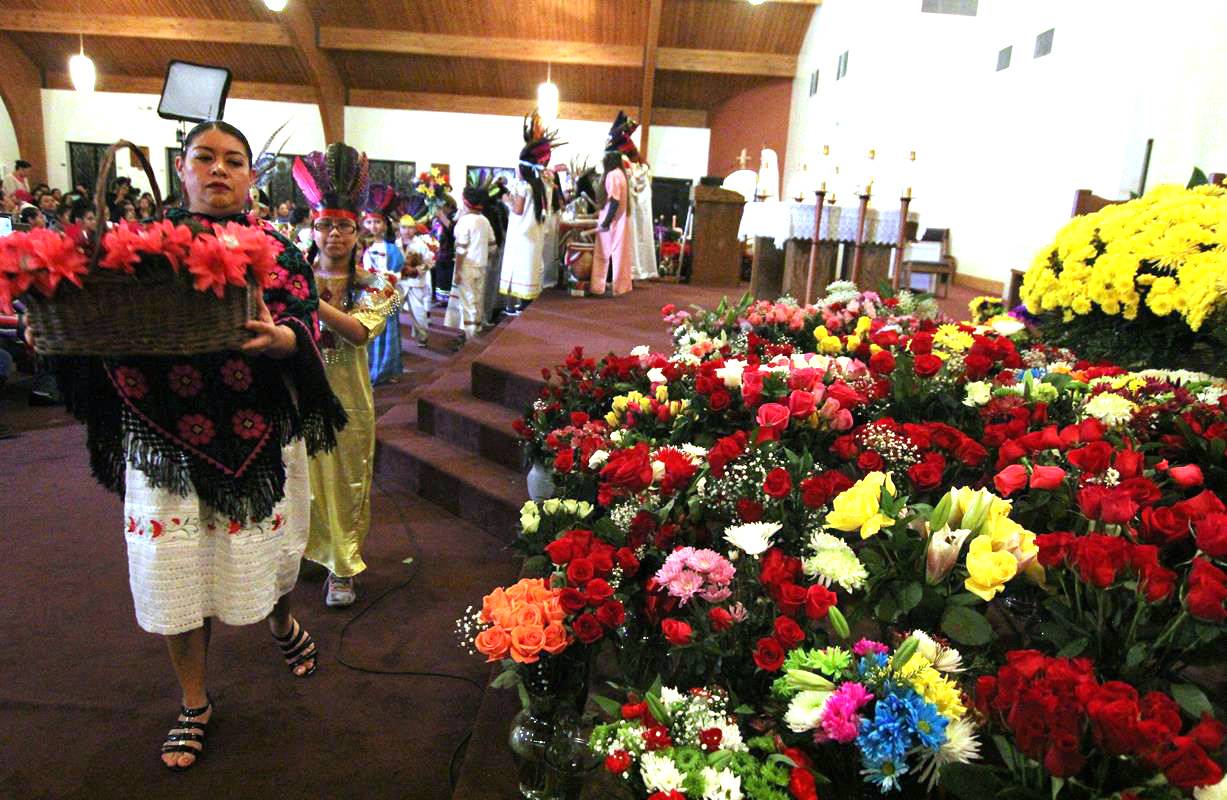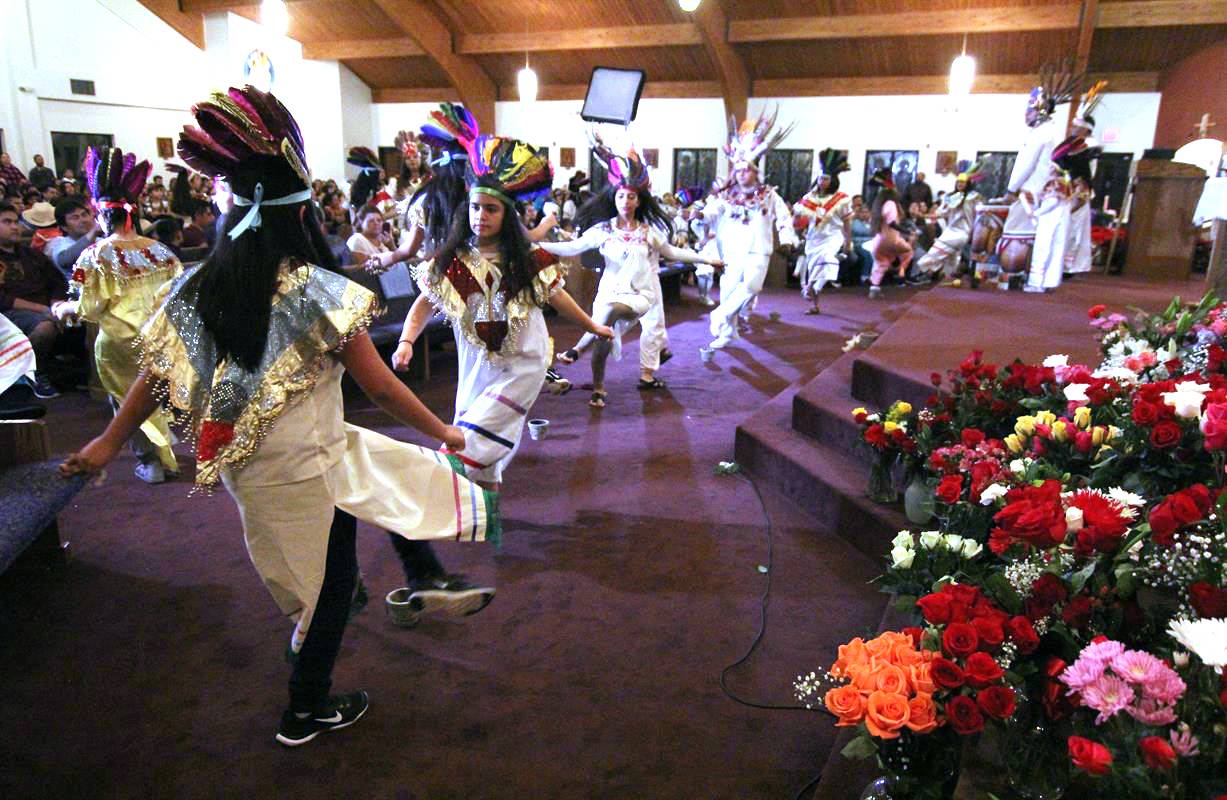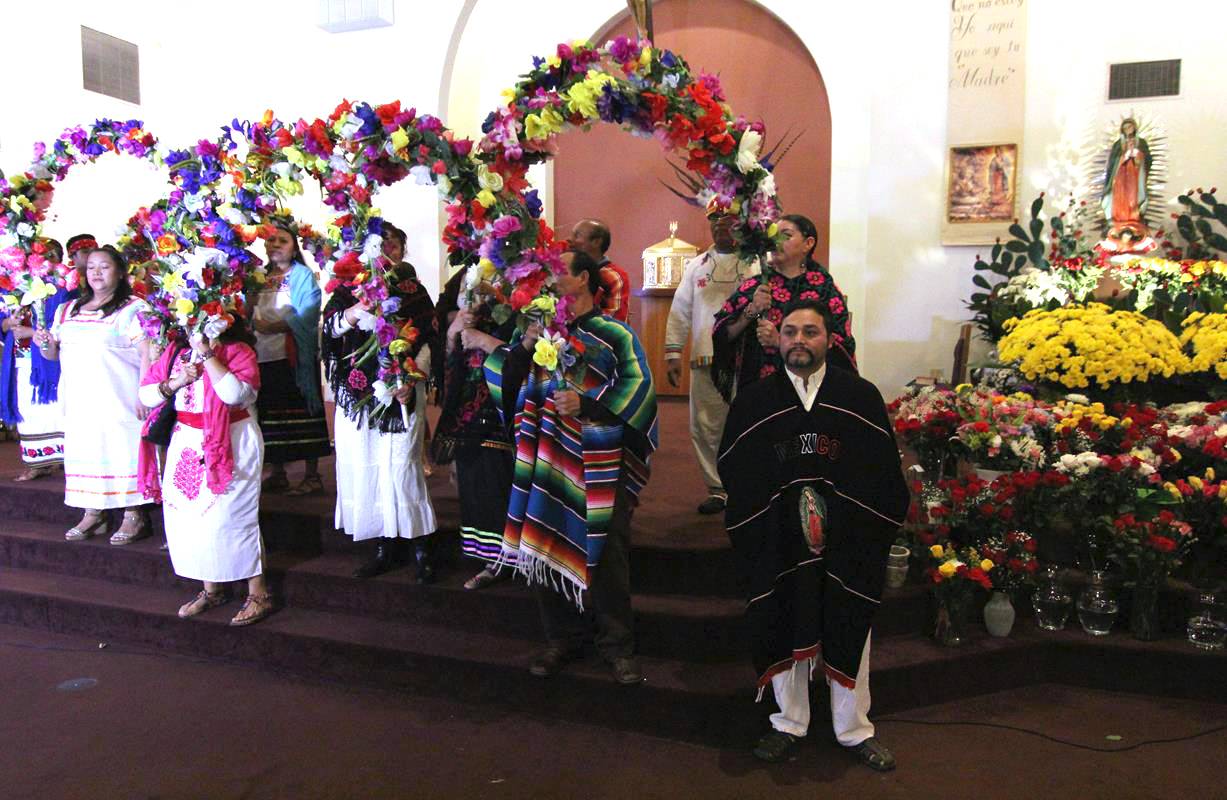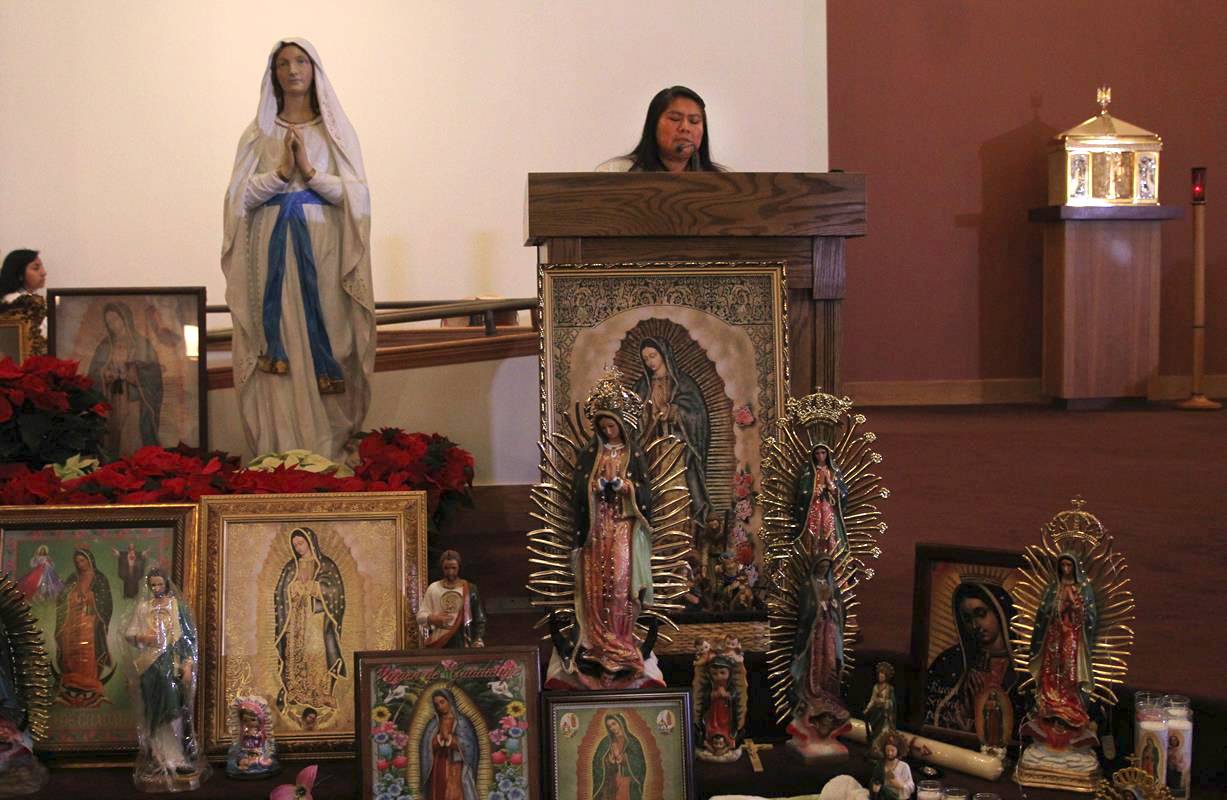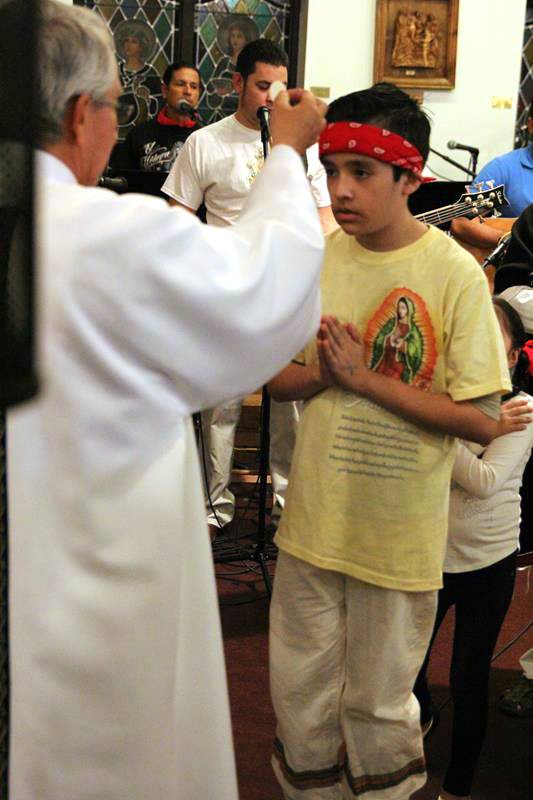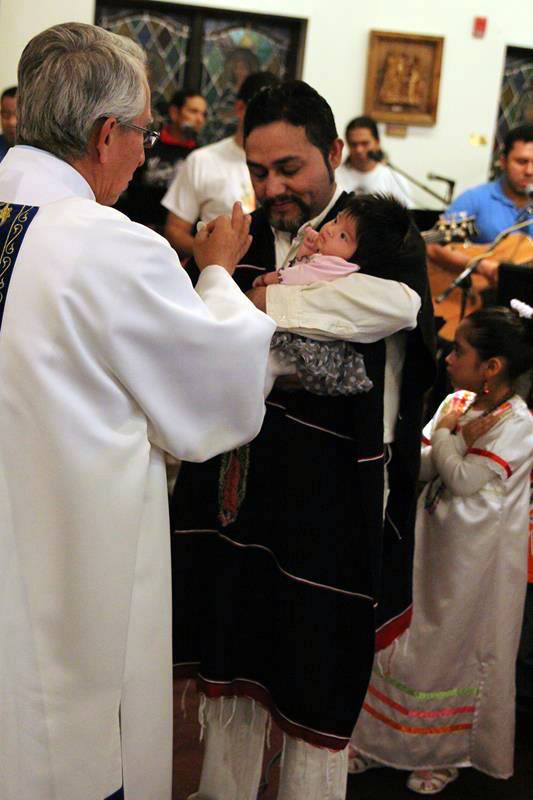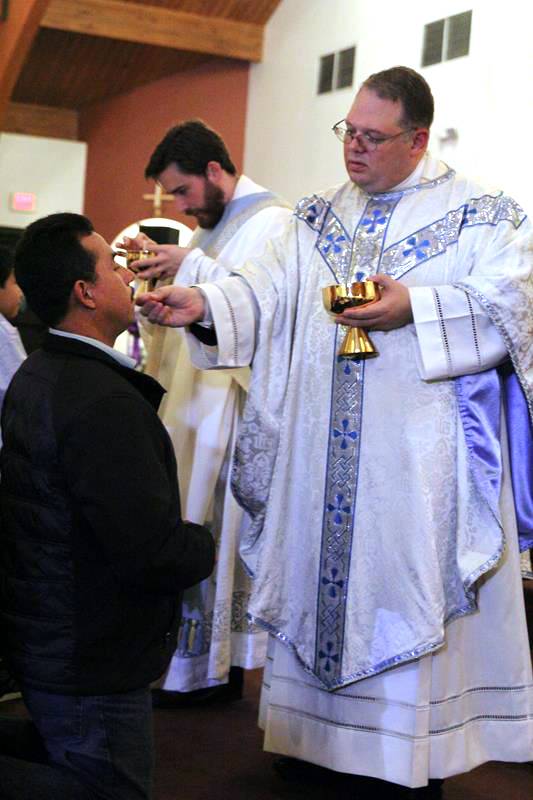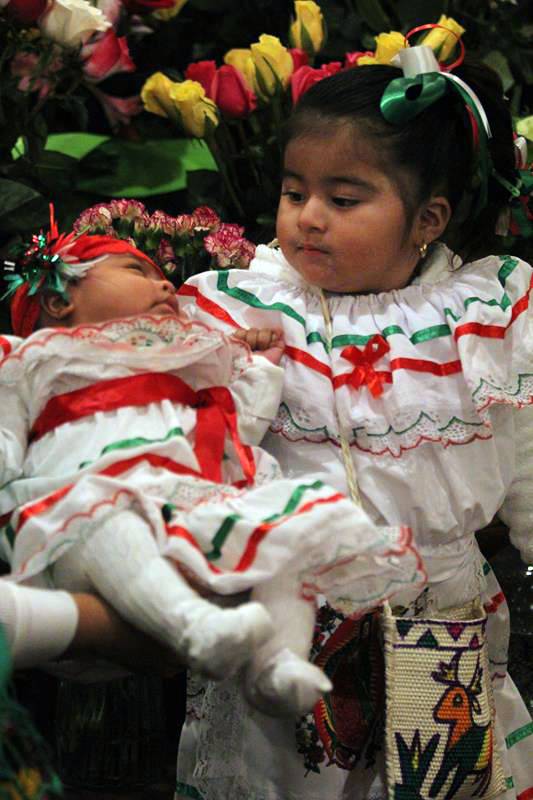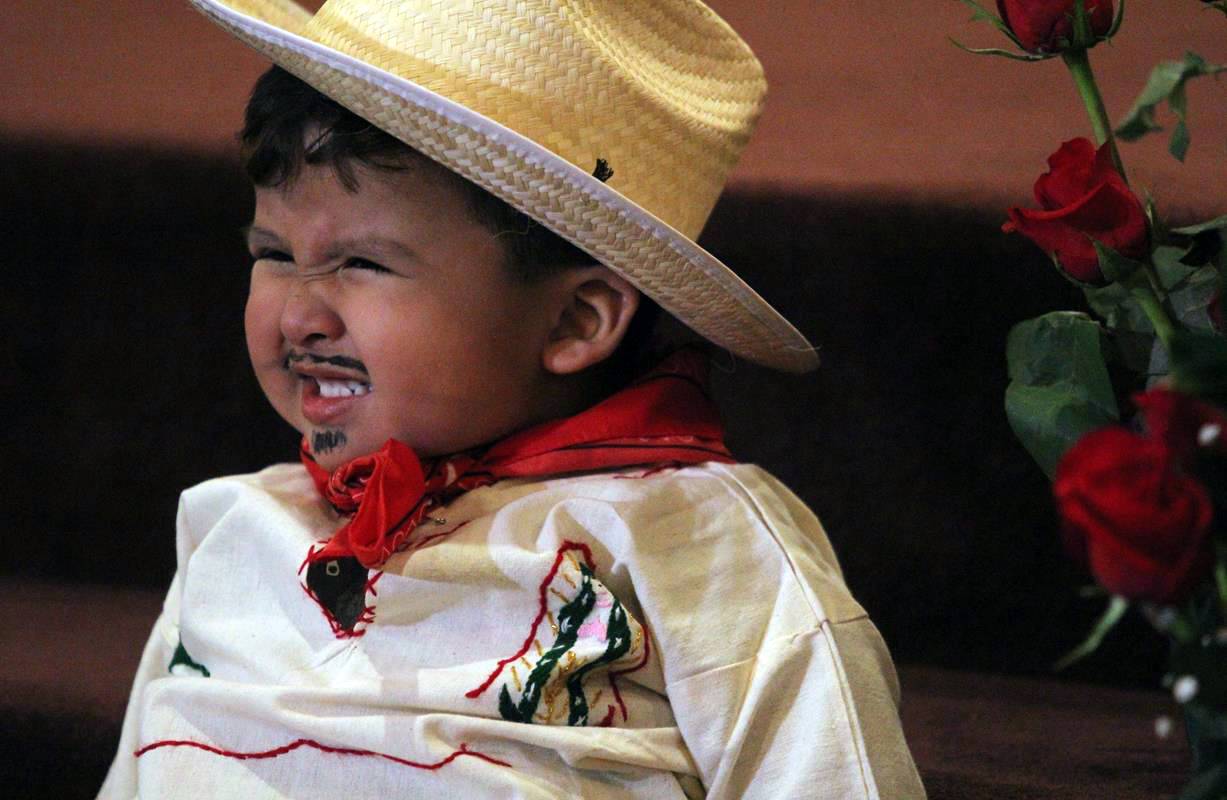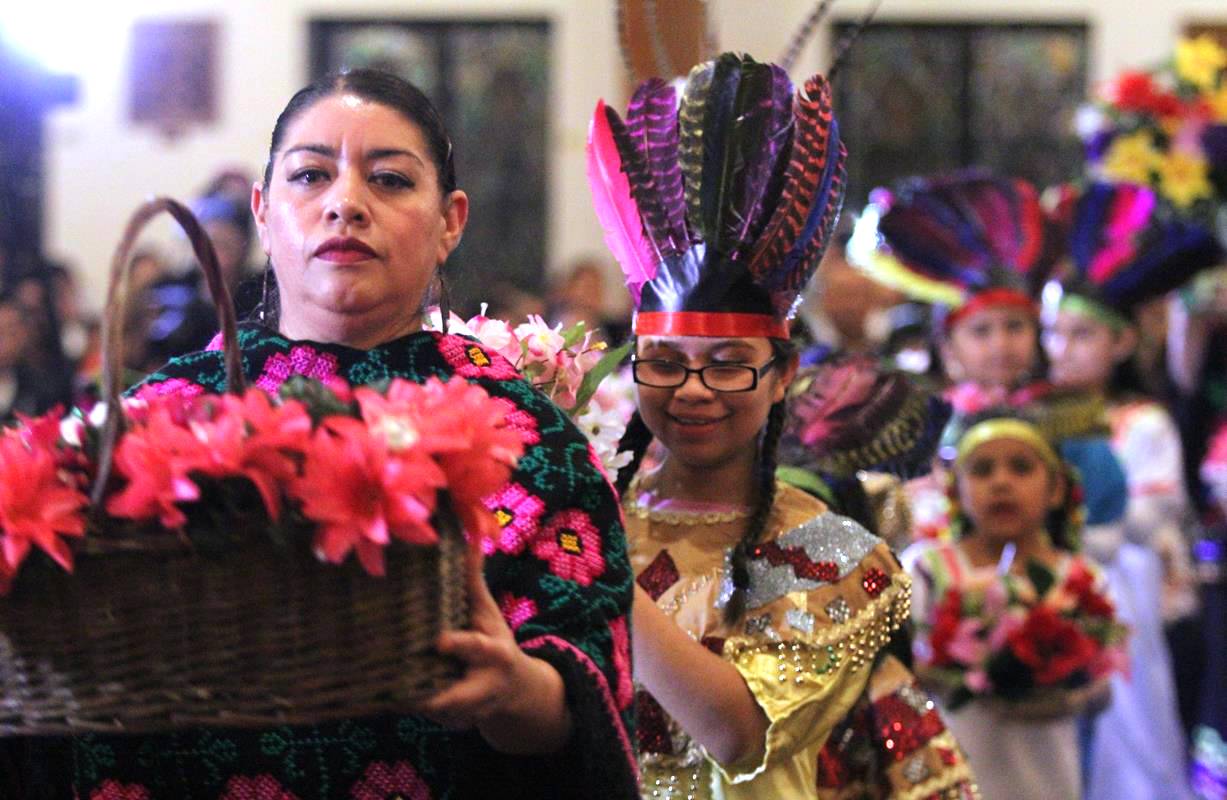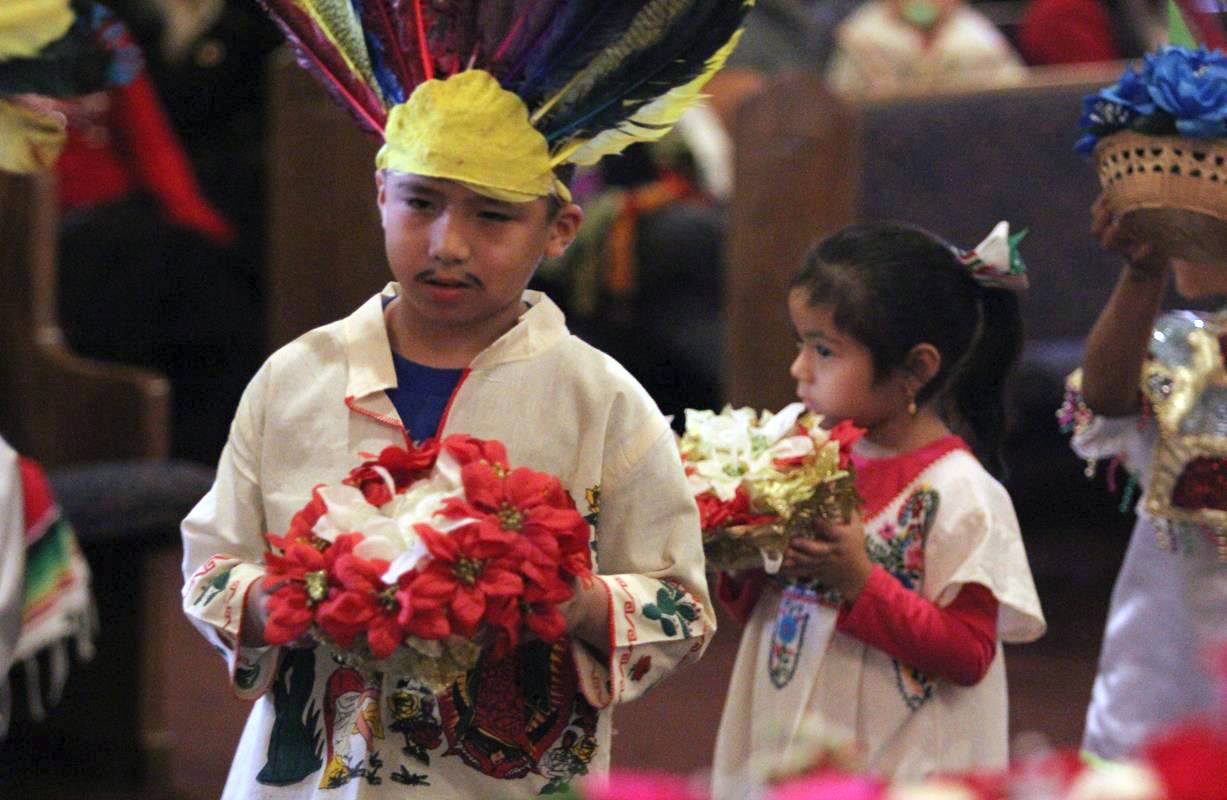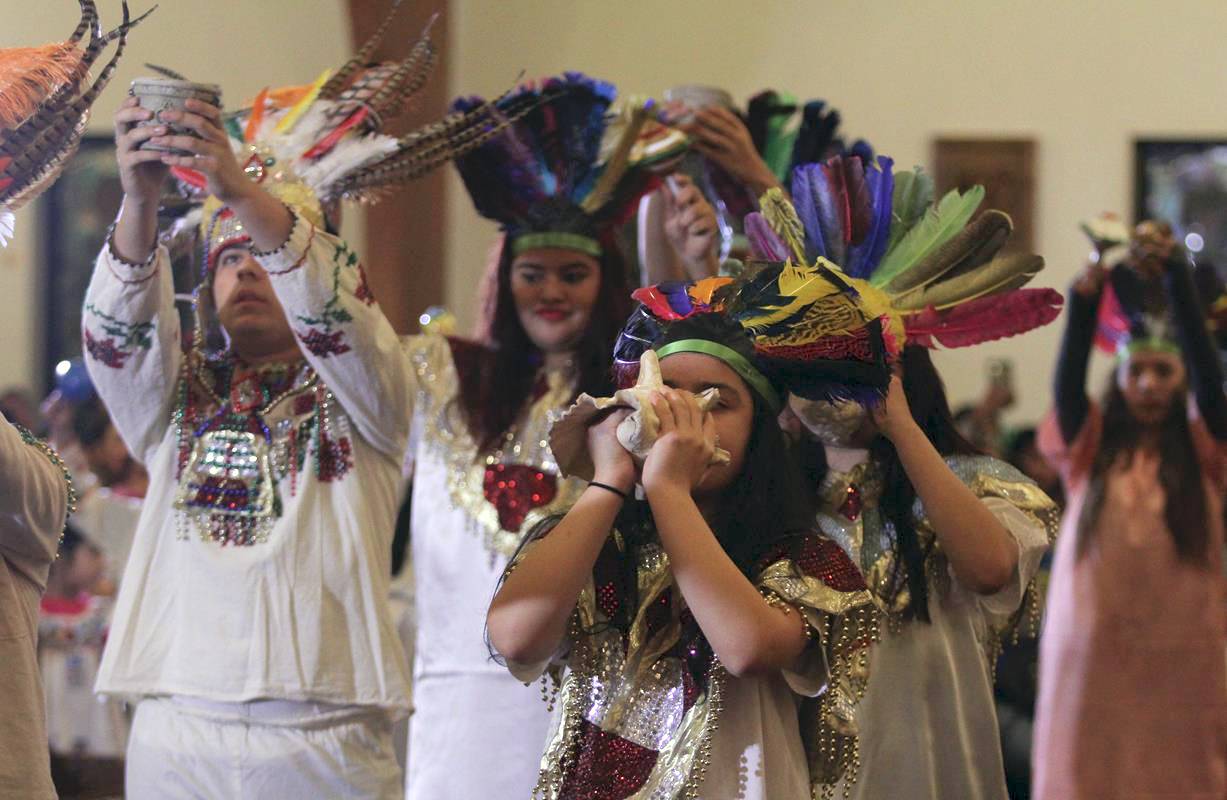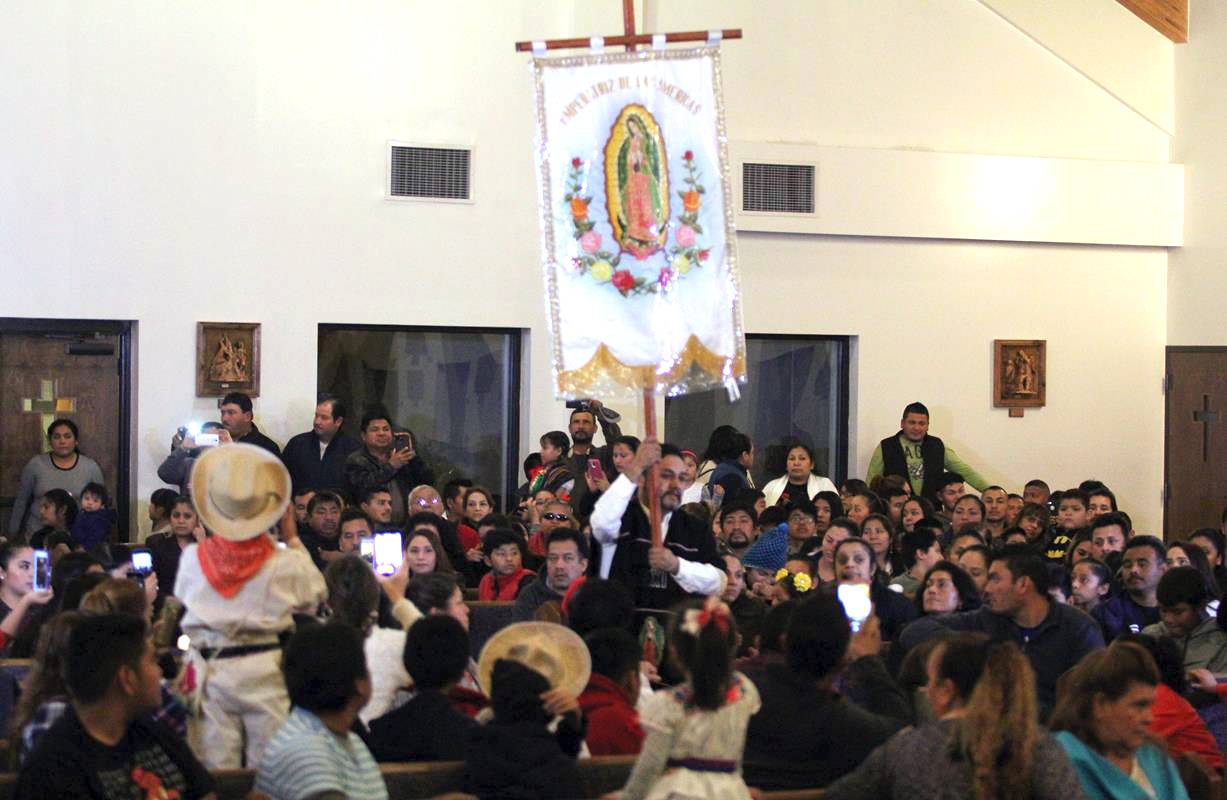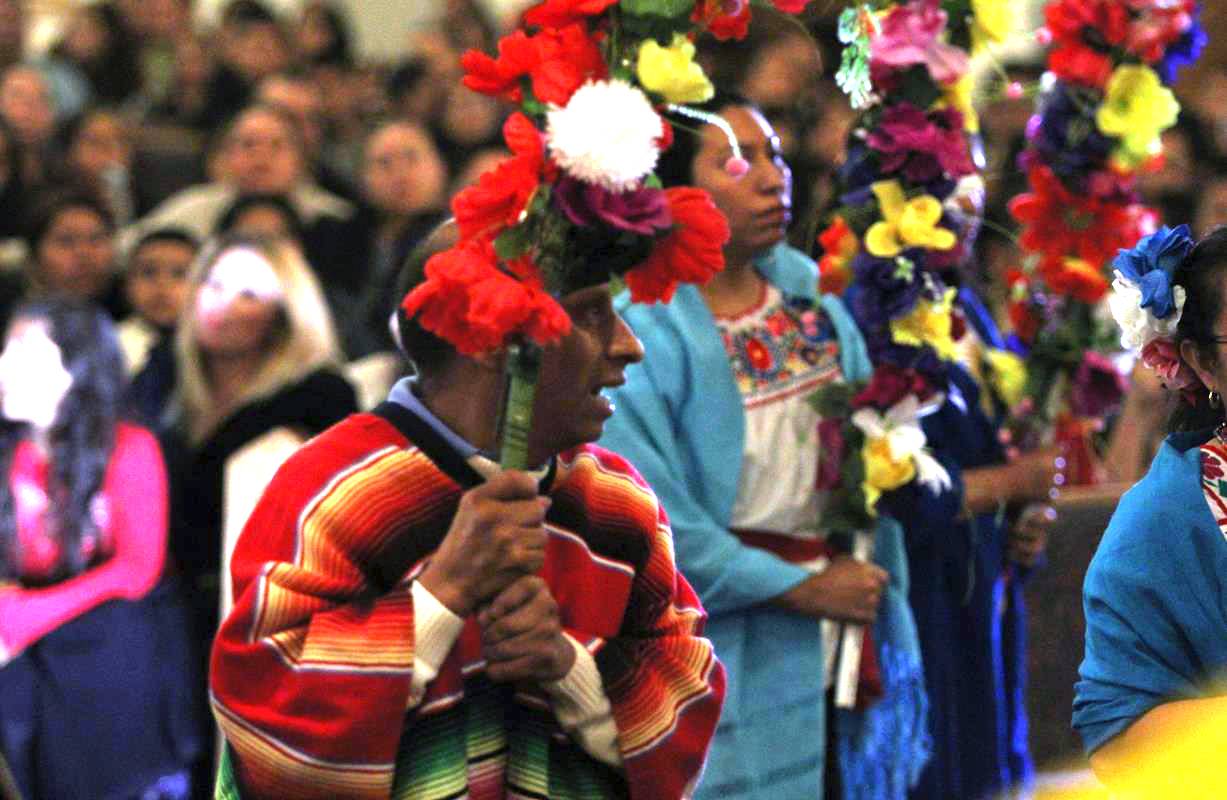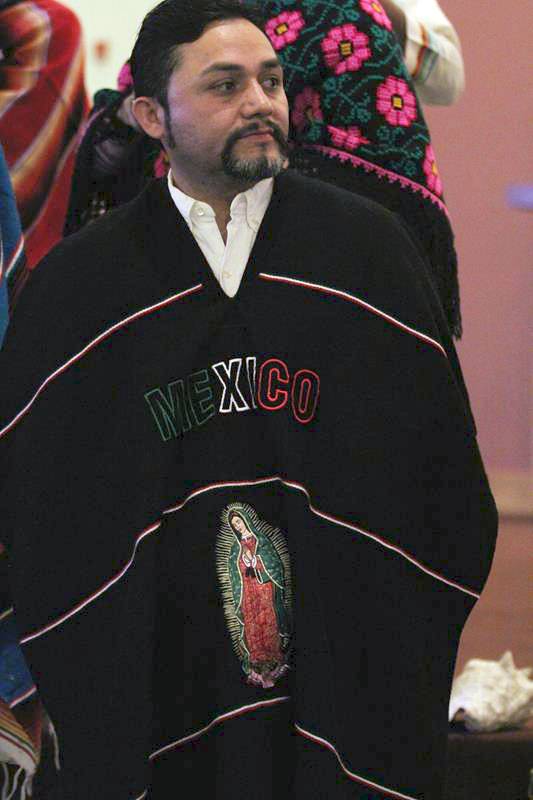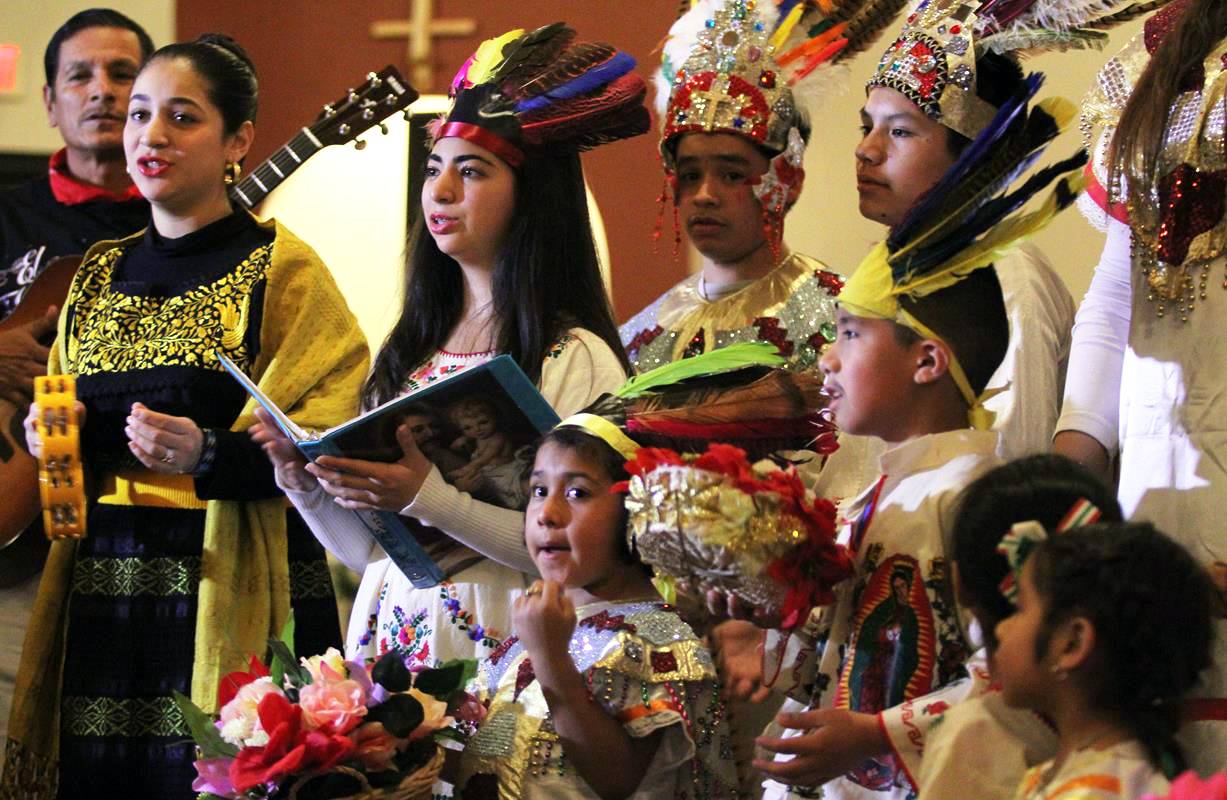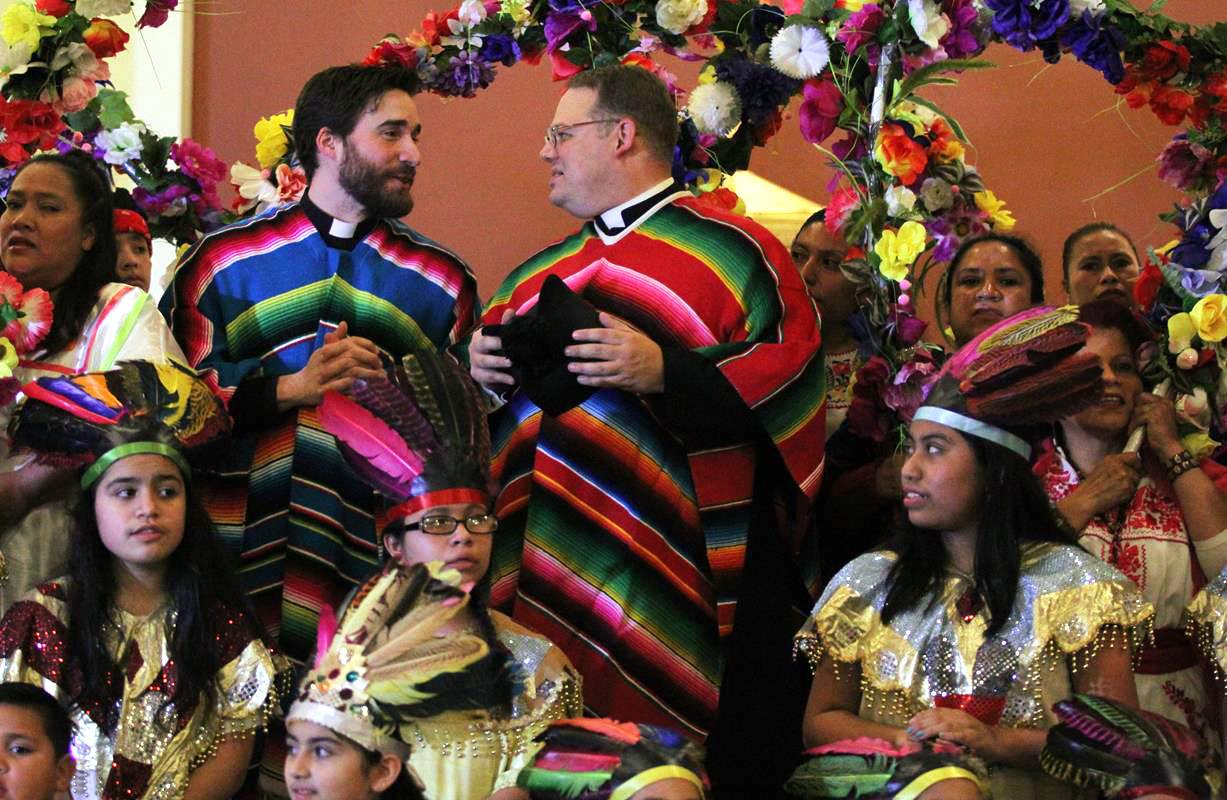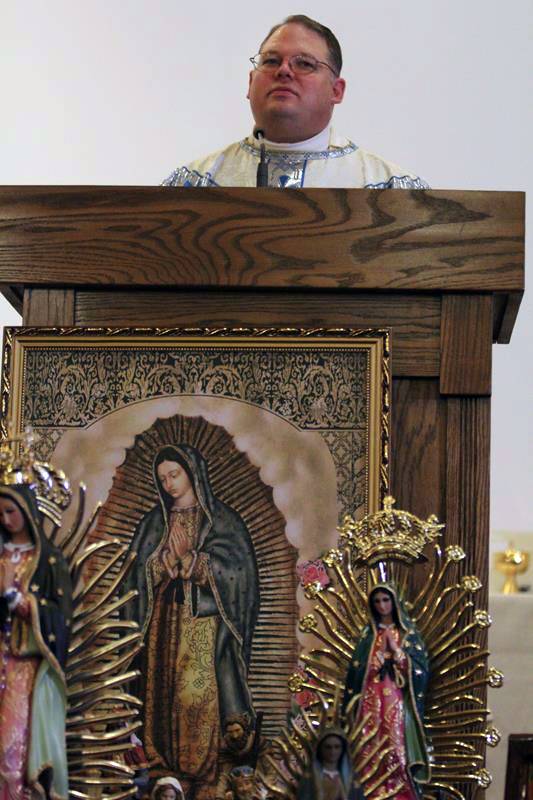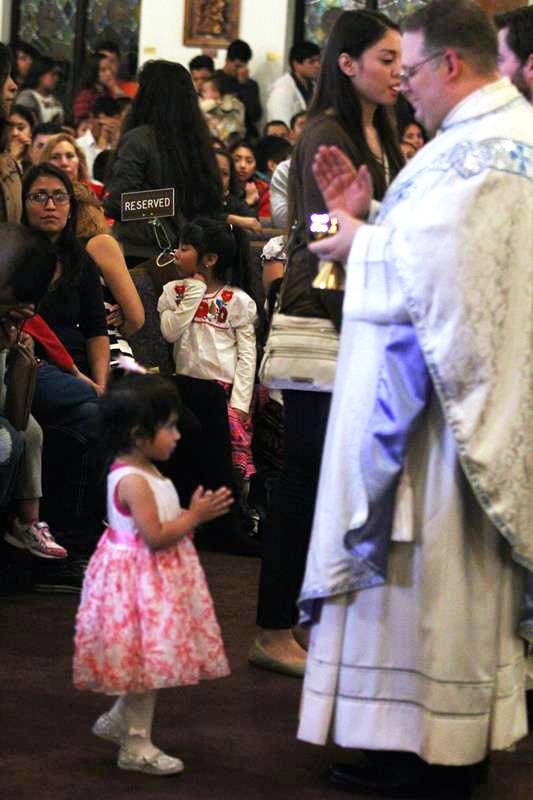Estate gift is largest in the history of the Catholic Church in North Carolina
ARDEN — An unexpected windfall has come to St. Barnabas Church through the generosity of a couple that quietly left the parish $3.6 million after their deaths. It is the single largest estate gift in the history of the Catholic Church in North Carolina.
Dennis Kushler passed away last October at the age of 84. He and his wife Mary had been members of the Arden parish since retiring to the area in 2003. Mary Kushler died in 2014, and after Dennis Kushler’s death, the parish learned that the Kushlers had made arrangements in their will to leave an endowment of more than $3.6 million to the church they called home.
It is the largest estate gift in either the Diocese of Charlotte or the Diocese of Raleigh, according to diocesan officials – including any gifts to the dioceses or any diocesan entity.
The Kushlers’ endowment will provide the parish with an estimated $175,000 annual income initially, and it will grow over time.
It is a general purpose endowment, so the money can be used to help in whatever way the parish decides.
Not much is known about the Kushlers, as they came to St. Barnabas Church in their retirement years after having been registered members of Immaculate Conception Church in Hendersonville. They had no children and had been married for 20 years.
Father Adrian Porras, pastor of St. Barnabas Church, celebrated both Kushlers’ funeral Masses at St. Barnabas Church.
“We at St. Barnabas are so fortunate to receive such a significant endowment from the Kushlers,” Father Porras said. “Dennis and his wife Mary were members of St. Barnabas for some time. Unfortunately, because of health reasons they were not very active in the parish when I arrived in 2008. Nevertheless, their amazing generosity to our parish is deeply appreciated.”
Jim Kelley, director of development for the Charlotte diocese, is grateful for the Kushlers’ unexpected gift to the parish of nearly 1,000 registered households in the Asheville metro area.
“We’ve known since 1998 that the Kushlers were going to do something for the Church with their estate, but we didn’t know exactly what they were going to do,” Kelley said. “We are so grateful for this transformative gift.”
The endowment will be administered through the Diocese of Charlotte Foundation. Established in 1994, the foundation has grown to encompass 243 endowments and more than $39 million in total assets.
To date, more than 900 people have indicated that they are making gifts to the Church in their estates, anywhere from the thousands to the millions of dollars, Kelley said.
“We are finding more and more people in the diocese are remembering the Church and the diocese in their estates,” he said. “They want to leave a legacy to their faith.”
Endowments, he noted, provide an ongoing source of support, as the principal funds remain intact and the recipient entity receives funds from the income.
“What Mr. and Mrs. Kushler did will have an impact on that parish forever,” he said.
“We encourage people to commit to stewardship as a way of life. It involves people giving their time, their talents and their treasure in service to the Church. An estate gift enables people to give of their treasure after their death,” Kelley said.
For more information about establishing an endowment or providing an estate gift, contact Ray-Eric Correia, diocesan director of planned giving, at 704-370-3364 or This email address is being protected from spambots. You need JavaScript enabled to view it..
— SueAnn Howell, Senior reporter
 Life of Father Tolton, his family held up as example
Life of Father Tolton, his family held up as example
HICKORY — Black Catholics must learn and embrace their history if they want to serve Jesus Christ and His Church in a more profound manner when facing the challenges of today.
That was one of the messages from Rev. Canon A. Gerard Jordan of Daylesford Abbey in Paoli, Pa., and Deacon Curtiss Todd of Our Lady of Consolation Church in Charlotte during a Day of Reflection Nov. 19 at the Catholic Conference Center, hosted by the Diocese of Charlotte’s African American Affairs Ministry in honor of Black Catholic History Month.
The annual event drew more than 125 people from parishes in Asheville, Charlotte, Greensboro, Monroe and Winston-Salem.
Pictured: More than 125 people from across the Diocese of Charlotte, including Naomi McDowell Byrd from Our Lady of Consolation Church, participated in a Day of Reflection at the Catholic Conference Center in Hickory, sponsored by the diocesan African American Affairs Ministry. The program featured a talk by Rev. Canon A. Gerard Jordan of Daylesford Abbey in Paoli, Pa., who spoke on the life of Father Augustus Tolton, the Church’s first recognizable African American priest. Father Jordan is pictured below with Our Lady of Consolation Church’s Youth in Action members Jovanka Gonzalez, Catherine Hill, Chimmy Oduh, Amily James and Anthony Duliepre (behind James). (Photos by Patricia L. Guilfoyle, Catholic News Herald)
Father Jordan serves as special assistant to the postulator heading up the cause of sainthood for Father Augustus Tolton, the Church’s first recognizable African American priest.
Father Jordan gave a detailed account of Father Tolton’s life, even enlisting young audience members from Our Lady of Consolation Parish’s Youth in Action group to portray members of the Tolton family as he told his stories.
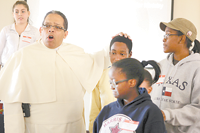 Using St. Paul’s Second Letter to the Corinthians, 4:7-11, as the theme for his talk, he encouraged participants to look to Father Tolton and his family as an example of Christian witness.
Using St. Paul’s Second Letter to the Corinthians, 4:7-11, as the theme for his talk, he encouraged participants to look to Father Tolton and his family as an example of Christian witness.
Augustus Tolton was born a slave in 1854 on a plantation near Brush Creek, Mo. His father left to join the Union Army during the Civil War. In 1862, his mother escaped with her three children by rowing them across the Mississippi River and settling in Quincy, Ill.
She insisted on raising her family Catholic in their new home, and the entire Tolton family became active in their parish. Young “Gus” showed great devotion to God at a young age, but he had to leave one Catholic school because of threats of bullying. He found a haven at St. Peter Parish and School, where he learned to read and write and was confirmed at age 16.
He was encouraged to discern his vocation to the priesthood by the local foreign-born white priests. The Franciscans who taught him at St. Francis College (now Quincy University) helped him gain acceptance to a seminary in Rome, since none in the United States would accept him. He was ordained for the Propaganda Fide Congregation in Rome in 1886, expecting to become a missionary in Africa. Instead, he was sent back to Quincy, where he eventually served as pastor in one of the local parishes. There he endured racism, physical threats and abuse from white parishioners and fellow clergy until he moved to the Archdiocese of Chicago in 1889.
In 1894 Father Tolton spearheaded the building of St. Monica Church for the growing number of black Catholics in Chicago. He became widely popular for his service to the poor, his preaching, and his commitment to ministering to Catholics of all ethnicities and backgrounds. Working himself to exhaustion, he died on July 9, 1897, at the age of 43, after suffering heat stroke upon returning home from a retreat for the priests of the archdiocese.
Father Tolton is among four black Catholics celebrated in the African American Catholic community whose sainthood causes have been opened. The Vatican is now reviewing the 3,000 pages of documents from Church and civil archives on Father Tolton’s life, as well as documentation for two reported miracles attributed to his intercession and over 50 sworn testimonials of people who say they received a divine favor through his aid.
Through his detailed investigation into Father Tolton’s life, Father Jordan said he has been inspired by the priest in his own ministry as the first black in his abbey community just outside Philadelphia.
“It was his knowing and his love for the Gospel that spilled over into my life,” Father Jordan said, enabling him to overcome the racism and other obstacles he experienced on his own journey to the priesthood.
Father Tolton’s spirituality flowed from the Eucharist, Father Jordan noted. “Everything he did started from the altar.”
Today, he continued, black Catholics must be strengthened by the sacraments, especially the Eucharist. Attending Mass, and insisting that one’s children also go to Mass, is about getting spiritual nourishment that “allows us to be renewed so we can make it six more days out of the week,” he said.
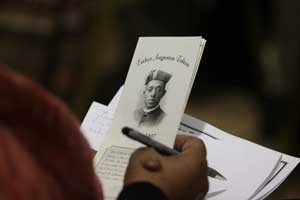
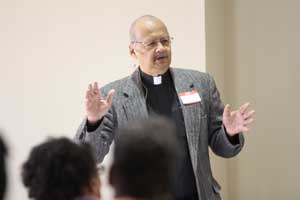 Deacon Curtiss Todd from Our Lady of Consolation Church in Charlotte speaks to the group.Daily prayer and the cultivation of silence are also important to deepening one’s relationship with God, he said.
Deacon Curtiss Todd from Our Lady of Consolation Church in Charlotte speaks to the group.Daily prayer and the cultivation of silence are also important to deepening one’s relationship with God, he said.
And just as Father Tolton and his family did, black Catholics today must apply their faith in every aspect of their lives, he said. Serving the parish in various ministries such as lectors or parish council members, helping the poor with more than just an occasional hand-out, educating and motivating young people, respecting and remaining close to one’s elders -- these are responsibility of every Catholic, but especially for black Catholics.
“Because (his spirituality) was rooted in the Gospel,” Father Jordan said, Father Tolton “took his success and remained faithful ... Quit teaching your children to be successful. Teach them to be faithful. We have lost that. Y’all want them to be doctors and lawyers and judges and priests and nuns, and you say, ‘Be successful. Make momma and daddy proud.’ Teach them to be faithful no matter where they are in life.”
The Tolton family and the religious who taught the young boy were essential to his becoming a priest despite all the odds, Father Jordan said. He pleaded with people to encourage religious vocations among young men and women today.
“It took a whole community to get this man to Rome to study and endure the bigotry and racism and hardships of life, but he got there – and it wasn’t on his own,” he said.
“Your first church is your household. You’re the pastor. Your very first school is your household. You’re the teacher,” he emphasized.
He said Father Tolton and his family serve as an example to all black Catholic families today, to encourage them to keep moving on their path to holiness. That heritage must be honored by learning about and living one’s faith, he said.
“It was families like his and others who allow us to worship in the church of our choice, the church of our baptism! You’re not there just because your mama signed you up. You’re not there just because you got a house in the neighborhood. You’re not even there because you bought the bricks and mortar that built the place. You’re there because of your ancestors who honored their baptism! Somebody say ‘Amen!’” To which everyone enthusiastically replied, “Amen!”
Father Jordan entreated participants to take what they learn and “use it in your ministry ... or you’ve wasted your time.”
Father Jordan’s account of the life of Father Tolton was “very interesting, very inspiring,” said George Desmond of St. Benedict the Moor Church in Winston-Salem.
The day’s program also included a talk by Deacon Curtiss Todd, former vice chancellor of the diocese, who spoke about black Catholic identity and the need for black Catholics to make their voices heard in the Church and in the wider community. He lamented the lack of diversity in Church leadership, including in the Charlotte diocese, and he chastised black Catholics’ inaction and negligence in fulfilling their baptismal call.
The Catholic Church is not exclusively a white, European domain, Deacon Todd noted, nor has it ever been. He said black Catholics must learn their history – including learning about black saints and the Church’s African popes – so that they may claim their rightful place in the Church today, combat the injustice and racism that are endemic in society, and pass this rich heritage down to the next generation.
The Day of Reflection was “fantastic,” said Mary Abbott, a member of Our Lady of Consolation Church in Charlotte.
“Amazing,” echoed fellow parishioners Naomi McDowell Byrd and Catherine Gomez, who also serves as a board member with the diocesan African American Affairs Ministry.
— Patricia L. Guilfoyle, Editor
Related stories:
Black Catholic popes, saints and leaders
Celebrating Black Catholics yesterday and today
Did you know?
On July 24, 1990, the National Black Catholic Clergy Caucus of the United States designated November as Black Catholic History Month to celebrate the history and heritage of black Catholics. November is significant because two important black saints are commemorated within the month: St. Martin de Porres’ feast day (Nov. 3) and St. Augustine’s birthday (Nov. 13). With All Saints and All Souls’ Day, we also remember the saints and souls of Africa and the African Diaspora.
Learn more
At www.nbccongress.org: Learn more about the National Black Catholic Congress and its upcoming events, download educational resources and get vocation information
 Brownd
Brownd WilliamsBELMONT — The Sisters of Mercy of North Carolina Foundation has named two experienced women to newly created leadership positions effective Jan. 1, 2017.
WilliamsBELMONT — The Sisters of Mercy of North Carolina Foundation has named two experienced women to newly created leadership positions effective Jan. 1, 2017.
They are Mercy Sister Paulette Williams, who will serve as executive vice president, and Cheryl Brownd, who will step into the role of program director. The positions are being created as Executive Director Michelle Maidt concludes her service to the foundation at the end of December.
Perhaps best known as the former principal of Charlotte Catholic High School, Sister Paulette also served as vice president of the Sisters of Mercy-South Central Community and as the president of the North Carolina Region of the Sisters of Mercy. In her new part-time position, she will become the foundation’s spokesperson and will provide mission, governance and fiscal oversight.
A 17-year veteran of the foundation’s staff, Brownd currently is senior program officer. She began her tenure as program assistant and later was named program officer before assuming her current role in 2013. Prior to coming to North Carolina, Brownd was grants administrator with the Russell Sage Foundation in New York.
In her new role as program director, Brownd will oversee day-to-day operations and will represent the foundation at community meetings and forums, as well as continuing her current duties.
“We are fortunate to have two such capable women to assume these newly defined roles,” said Mercy Sister Linda Falquette, president and chairperson of the foundation’s board of directors. “The Sisters of Mercy value and appreciate the work the foundation carries out daily and the integrity of its grant process in serving women, children, seniors and those who struggle with poverty.”
Since 1996, the Sisters of Mercy of North Carolina Foundation has awarded 1,730 grants totaling nearly $78 million to organizations assisting unserved or underserved populations.
On behalf of the Sisters of Mercy-South Central Community, the foundation provides grants to tax-exempt health care, educational and social service organizations that meet its criteria and effectively assist women, children, those who are elderly, and who are economically poor to improve the quality of their lives.
— Myra Joines, communications director for the Sisters of Mercy-South Central Community
 Honoring the Virgin of Guadalupe Dec. 12
Honoring the Virgin of Guadalupe Dec. 12
MONROE — Looking out over a sea of parishioners, most of whom hail from Mexico, Father Benjamin Roberts preached on the feast of Our Lady of Guadalupe to a standing-room-only crowd Dec. 12 at his parish of Our Lady of Lourdes.
“The voice of the Mother of God calls me to her Son!” he said.
“On the mountain of Tepeyac, the Virgin of Guadalupe called to Juan Diego. He was humble. He was faithful. He was obedient. He was precious to Our Lady. He was precious in her sight. Our Lady had come to see him. She was a pilgrim to Guadalupe. She came with a message. She came with an invitation. She came to announce the love of the Father with the voice of a Mother. She was a pilgrim to Guadalupe with a message from heaven.”
Hundreds of parishioners, many dressed in traditional Mexican clothing to mark the feast of Our Lady of Guadalupe, made their own pilgrimage to the church to sing songs to the Blessed Virgin, perform traditional dances, bring her roses and bouquets of flowers, thank her for her motherly love and ask for her intercession.
“Our Lady was a pilgrim at Guadalupe inviting us to begin our pilgrimage to heaven. She invited us to union with her Son and union with each other,” Father Roberts explained. “The Virgin of Guadalupe tore down the walls that separated peoples. She tore down the walls of division and asked for a church to be built. She tore down the walls of sin and built up the people of God.
“The Virgin Mother of God was a pilgrim at Guadalupe so that we could join in the pilgrimage of all creation to the house of the Father.”
He stated that at the voice of the Virgin Mother, we are all pilgrims. We join with Juan Diego as we listen to the voice of Our Mother, the Church.
“We listen to Her and we hear of the Lord Jesus.”
Father Roberts noted that we share the faith of Christ which has been shared with us. We found our families on the rock of Christ and the grace of His sacraments.
“We are pilgrims to Guadalupe. We are pilgrims from Guadalupe. We have heard the voice of our Mother. We have heard of her love for us. We have heard the mission that she has entrusted to our care. We are pilgrims and we carry the message of heaven,” he concluded.
— Story, photos and video by SueAnn Howell, senior reporter.
 CHARLOTTE — “Get out of your comfort zone.” That was one of the conclusions drawn during a frank conversation on racism organized by two Charlotte parishes directly affected by recent racial unrest.
CHARLOTTE — “Get out of your comfort zone.” That was one of the conclusions drawn during a frank conversation on racism organized by two Charlotte parishes directly affected by recent racial unrest.
Protests and violence erupted in Charlotte last September following the fatal police shooting of Keith Lamont Scott and the subsequent shooting death of protestor Justin Carr. The week-long protests swirled around St. Peter Church, a majority white parish in uptown Charlotte. And the majority-black congregation at Our Lady of Consolation Church mourned the death of 26-year-old Carr, whose family has been members for three generations.
In response, the Black Culture Commission of Our Lady of Consolation Church and the Social Justice Ministry of St. Peter Church arranged the Dec. 10 event, “Charlotte Catholics: Our Stories in Black and White,” to talk about the personal and social wounds that the unrest exposed. More than 200 people from 11 parishes participated in the four-hour discussion.
“Our views from either side are different, we know that,” acknowledged Toni Tupponce, one of the organizers from Our Lady of Consolation Church. But, she added, “when we do nothing and we say nothing, we look around and say it’s not our problem – a couple of months ago, that scourge hit our very doors here when Justin Carr was killed in uptown Charlotte, and we’re still feeling that pain. We must do something. It is, in fact, our problem. It is the Church’s problem because we are the Church.”
Rocky Whitaker, a member of Our Lady of Consolation Church, recounted a recent family gathering at a resort. His mother asked him to take out the trash one night – something most people would do without thinking, he said, but for a black man it’s not so simple.
Whitaker described his thought process at that moment: “Here I am outside, it’s dark, I got a bag, (security) don’t know me. I’d better have my license just so I can prove that I belong on this property. So I go back and get my license.” But he didn’t have a pocket for his wallet and keys, so he thought about tucking them in his sock. “Oh, no, not a good idea. I should not do that,” in case someone might think he’s reaching for a gun. He ended up changing his pants and swapping his hoodie for a jacket, then “make sure I got my ID in my hand, go grab the trash, walk out through the door, put the trash away and come back. But before I left I had to stop – I had to go through a checklist to make sure that I felt safe about taking out the dad-gone trash. I had to sort of chuckle to myself – it’s funny, but it’s not funny.”
That mental “checklist” is something he’s been conscious of doing since he was about 12 years old, “so you don’t give anybody any excuses to do anything or to say anything,” he said. “But why did I have to go through a checklist just to take out the trash? Something’s not right with that picture.”
Talking honestly about situations like this is critical, he insisted. “Why should we have this conversation? Because we should. It’s our responsibility. Why should we Catholics have this conversation? Because we’re Christians.”
Mercy Sister Rose Marie Tresp, who has worked on race relations and social justice issues for decades, talked about recognizing her own unconscious biases and the sensitive issue of “white privilege,” as well as the Church’s admittedly slow response to racial injustice.
The U.S. bishops’ statement 1979 pastoral statement “Brothers and Sisters to Us” was a case in point, she said. Not only did it come decades after Catholics had joined in the civil rights movement, she said, but “listen to that title: ‘Brothers and Sisters to Us.’ Who is the ‘us’? I’m sure they didn’t realize it, but instead of saying ‘we’re all brothers and sisters,’ they saw the Church as a white Church inviting in the African-American Catholics to the club, rather that realizing that we’re all already in the club!”
“Civil rights ended segregation, but it didn’t end, or even know how to deal with bringing an end to the fears, the prejudices, the price and the irrational barriers to a truly integrated society,” she said.
As they sat down to share a meal together in small groups, participants also shared their personal experiences with racism or implicit bias, examining their own viewpoints and listening to others’ opinions.
Some said they struggled with what actually involves racism: “We use the word, but what does it mean? Does it look different to different people?” asked one white woman. Replied a black man sitting next to her, “There’s the way you see it, there’s the way I see it, and then there’s the way it is.”
“We all want the same thing regardless of who we are or where we came from,” said one participant. “Listening is a form of love.”
As they talked, participants came to the same conclusions: Continue the conversation on race, even when it feels uncomfortable. Get young people involved in bridging the racial divide. Remove barriers to a quality education – including greater financial assistance for poor children of color to attend Catholic school, which is too often seen as a privilege that only rich white people can afford.
And one suggestion that was repeated over and over again: Attend Mass at a parish “that looks different than you do.”
“Remember, the Catholic Church is a universal Church,” said one participant. “This is especially a challenge to us that are at white Catholic churches. Try, really try to go to a church with people that don’t look like you.”
— Patricia L. Guilfoyle, Editor


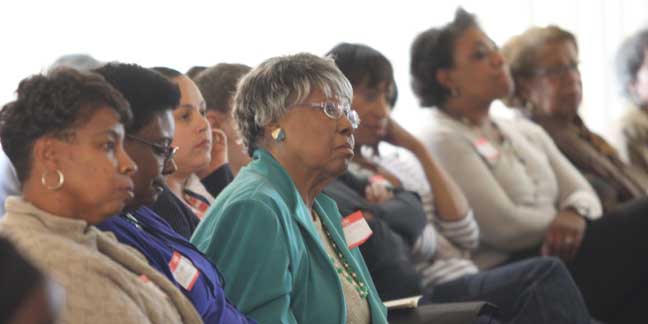 Life of Father Tolton, his family held up as example
Life of Father Tolton, his family held up as example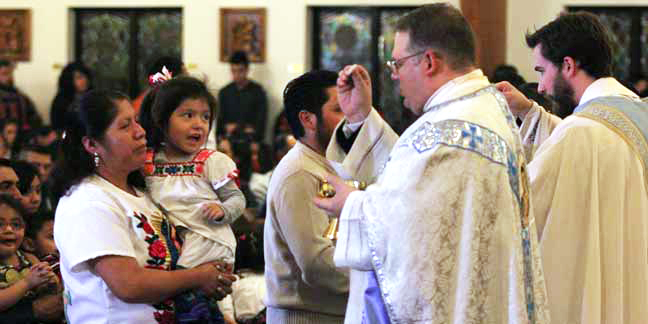 Honoring the Virgin of Guadalupe Dec. 12
Honoring the Virgin of Guadalupe Dec. 12